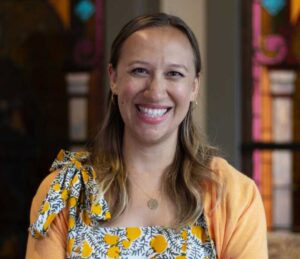
Readings:
Reading I: Is 45:1, 4-6
Psalm 96:1, 3, 4-5, 7-8, 9-10
Reading II: 1 Thes 1:1-5b
Gospel: Mt 22:15-21
Upon first read of today’s Gospel, it appears as if Jesus is advocating for a separation of religion and politics within our lives. “Give to Caesar what belongs to Caesar and to God what belongs to God.” In other words, we can worship God in the pews on Sunday and keep that part of our lives separate from voting in the booths on Tuesday, or our political actions and leanings in the public sphere. However, upon a closer look at Jesus’ words in the socio-historical context of the time, partnered with Paul’s letter to the Thessalonians and the first reading from the book of Isaiah, he is teaching us quite the opposite.
When Jesus was asked about paying taxes to Caesar, he was put in a difficult position. As Matthew the evangelist points out, Jesus knew that this was a test. If he had responded by saying that it is unlawful or immoral to pay taxes, he would have identified himself as a political threat to the Roman empire. On the other hand, if he had advocated for the census tax too positively, it would seem as if he was condoning the oppressive actions of the empire on his fellow Jewish people. Instead, he answered very tactfully, allowing the questioning party to point out the face on the Roman coin: Caesar’s. He then asserted that just as one should give to Caesar what belongs to him, it is necessary to give to God what belongs to God: our entire being. In other words, God alone deserves our glory and honor, even over the kings and mighty nations of the land.
As Christians, it is often very difficult to know how to navigate the numerous injustices and tragedies that flash across our screens and happen in our own backyards each day. It is easy to point out the hypocrisy of many political leaders who claim to be devout Christians, yet sign off on policies that severely harm the most marginalized and vulnerable. However, these fingers that we point must also be turned back onto ourselves- how are we allowing our faith in a God of radical love to guide our actions in the things that we fight for, or the positions we align ourselves with? Are we living our “public” lives in a way that worships and honors God first by building the kin-dom of love, forgiveness and justice?
As Paul, Silvanus, and Timothy wrote to the church in Thessalonica, we are chosen and loved by God above all else. All humans are God’s beloved, empowered by the Holy Spirit to spread the good news that death, hatred, and war will not have the last word; that love and justice will prevail, no matter how hopeless things may currently seem. When we leave our sacred spaces of worship, may we go forth with the conviction that all of the created world belongs to God, and to continue our “work of faith, labor of love, and endurance in hope,” remembering whose we are.
Director of Pathways@CTU